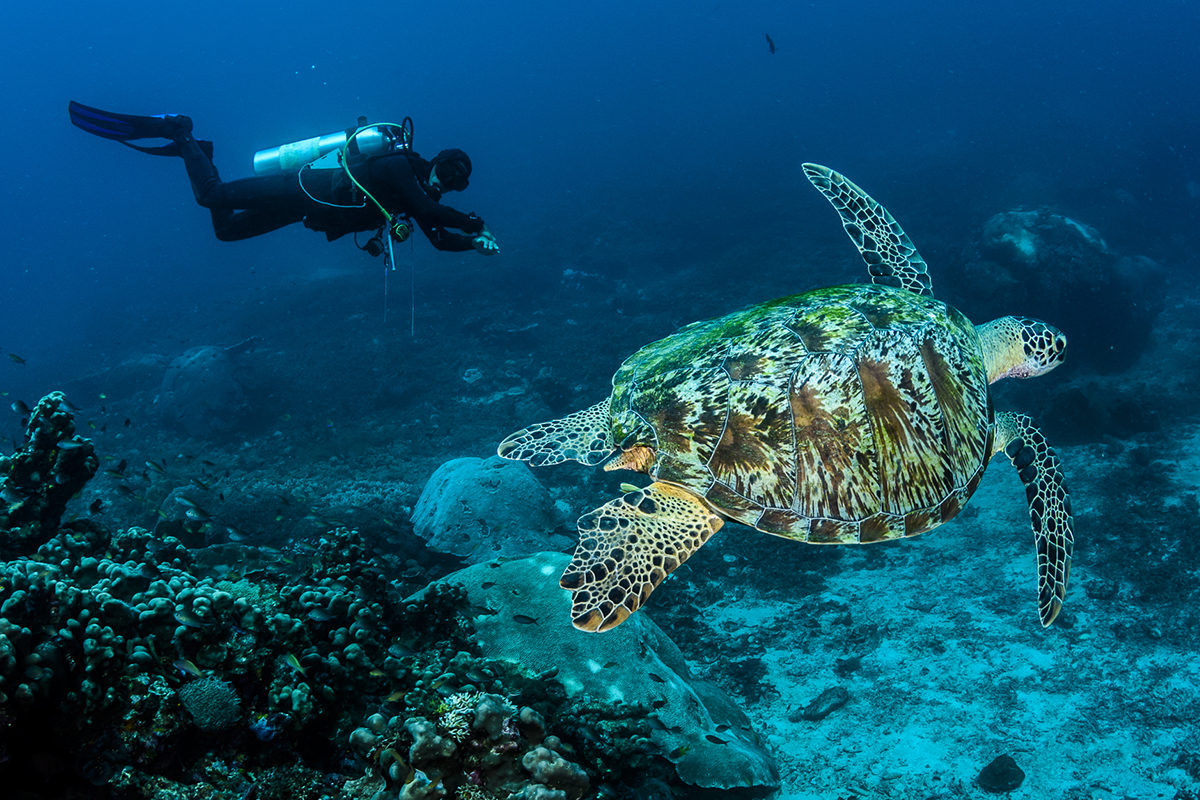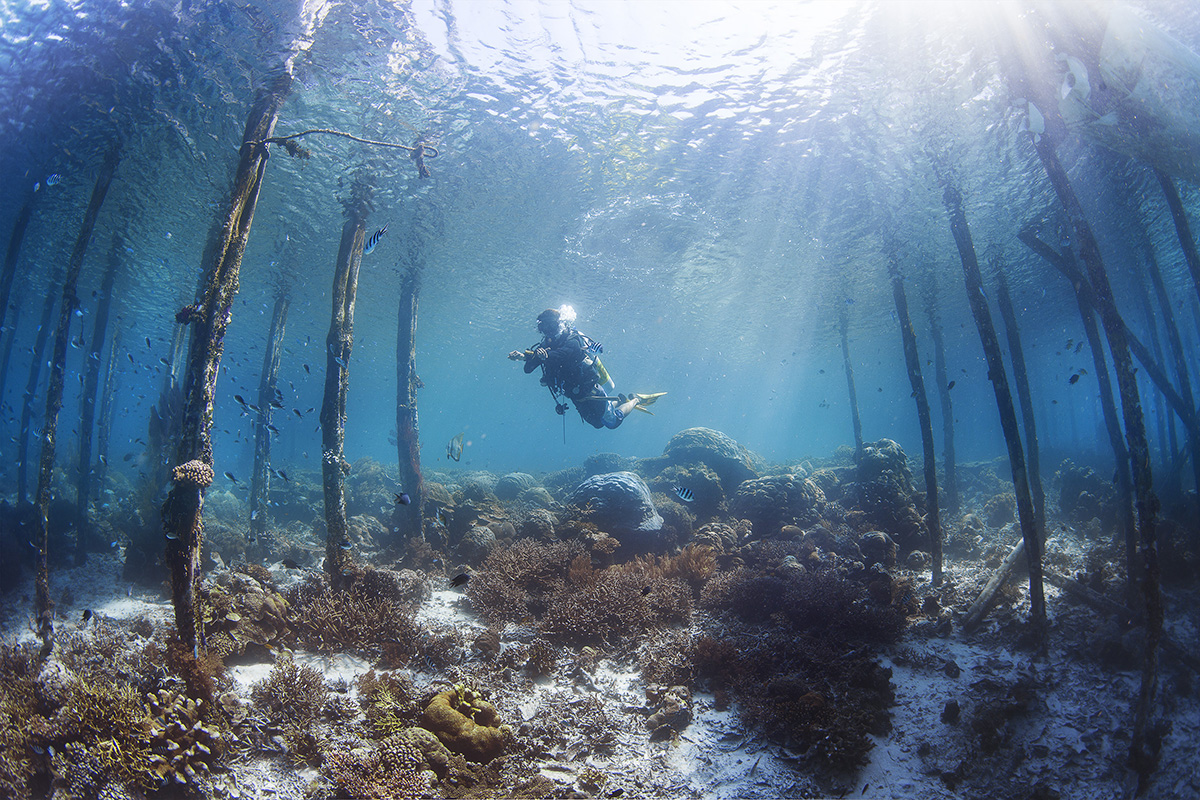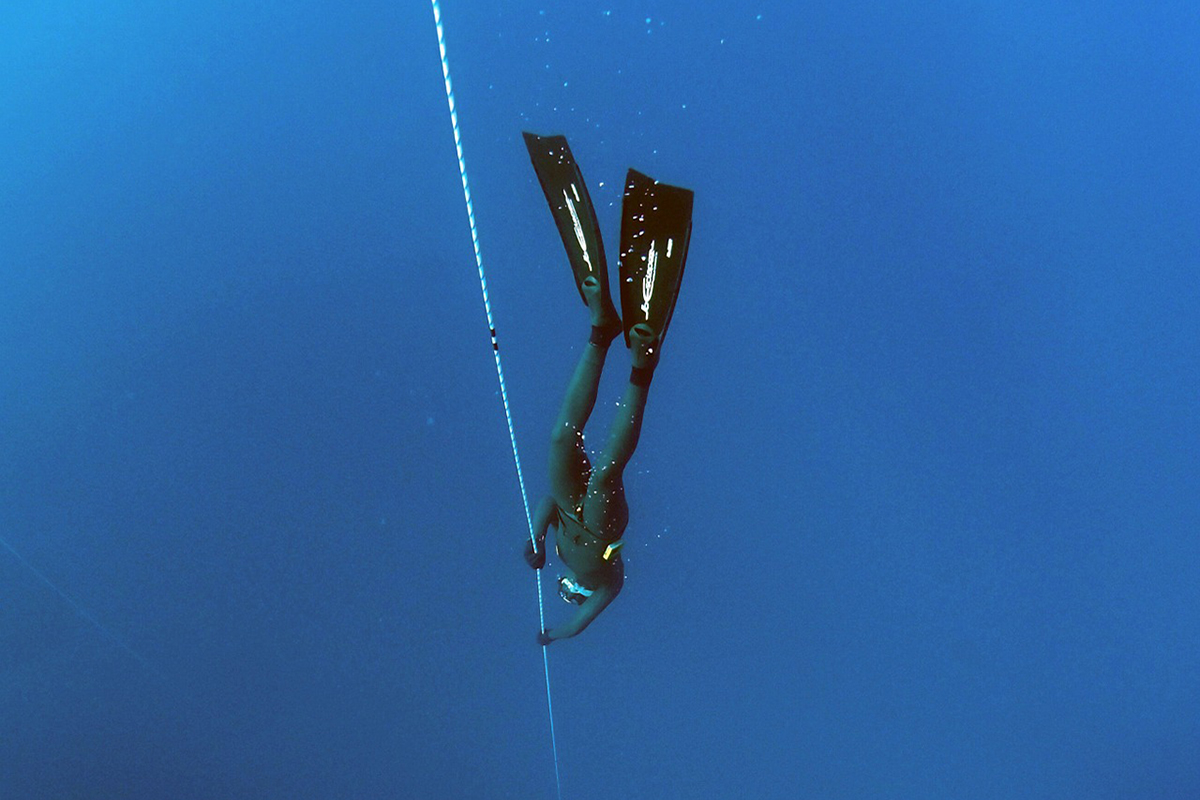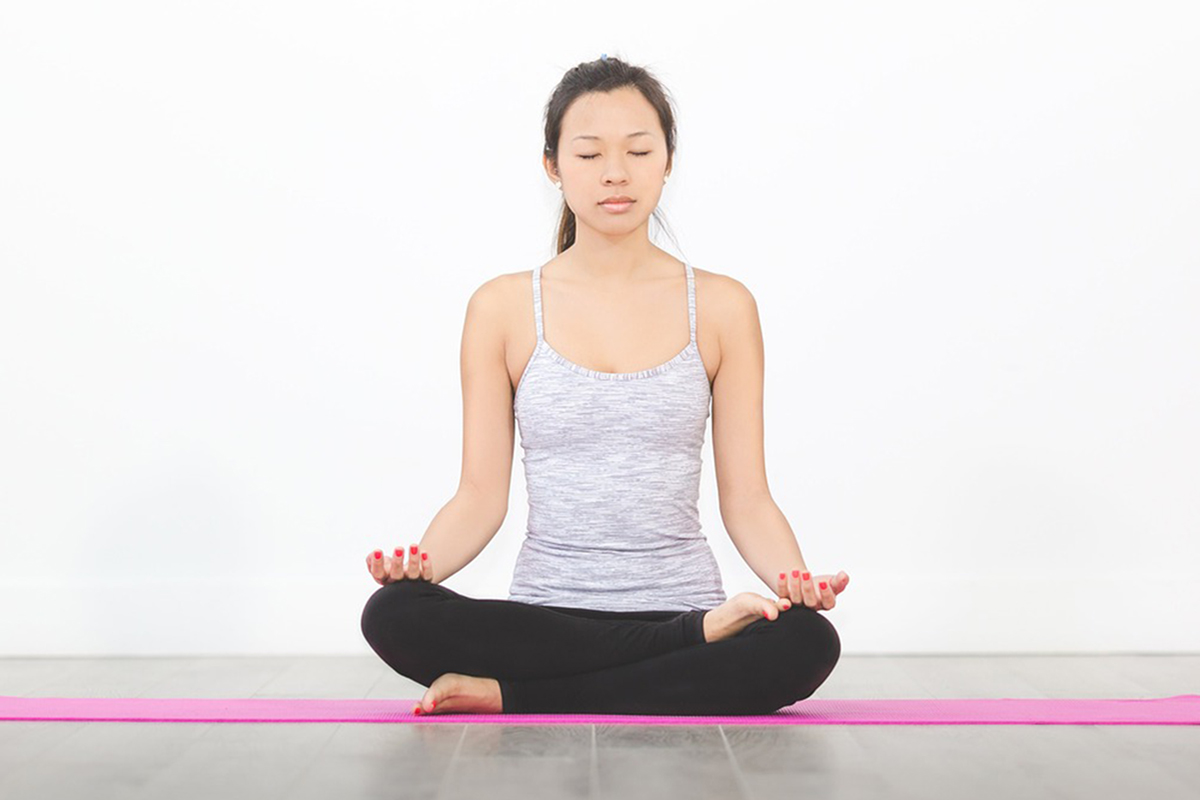Breathing Techniques to Help You Dive More Efficiently
When you do your dive training you learn how to dive efficiently to extend your bottom time and also keep yourself calm and relaxed. However, you might still notice that other divers seem to use less of their air than you do. Why does this happen and what does it mean about the way you’re breathing? Let’s discuss and see if you can learn some breathing techniques to help you dive more efficiently.
How to breathe ‘right’ while diving
When you first learn to dive the first thing you’ll be taught is to never hold your breath. This is something beginners tend to do as a reflex when they go underwater. After a few dives it becomes second nature to breathe more normally but some people do still hold their breath absentmindedly. Focus mindfully on your breath as you enter the water, and make sure to find a rhythm without holding your breath.
This calm, natural breathing is what you want to aim for. You will probably need to inhale longer than you would above water to get the oxygen into your lungs. Counting in for 4 slowly, holding for 2, and then exhaling for 4 is a good rule of thumb to work to. This is especially important in challenging diving situations. Raja Ampat has some very difficult conditions that take a calm diver with steady breathing to negotiate.
You’ll also be using your breath to adjust your buoyancy. Once you have descended and have found your neutral buoyancy, you should be able to maneuver higher and lower in the water with only the amount of air you are taking into your lungs. This can take time to master but will save you using your BC to change your buoyancy levels. In turn you will use less air from your tank.
Breathing techniques to learn for diving
There are techniques many divers employ to extend their air supply. Many of these come from other sports or practices and work brilliantly while scuba diving.
Freediving
Freediving has long been used as training for scuba dives. Many freedivers who also scuba are able to make a tank last much longer than other divers. Martin Stepanek, a 13 time freediving champion says “Freediving techniques build more-proficient breathing habits and a stronger ability to listen to our bodies, which can result in decreased gas consumption and more-enjoyable scuba dives.”
Freedivers are also generally more in touch with the sensations in their body when they dive. They know how to slow their bodies even further when they feel like they are coming to the end of their oxygen supply. They also react calmly and easily to the sensations that come and go that are caused by pressure when you dive to deeper depths.
Yoga
Yogic breathing techniques are also a way to control your intake of air and extend your tank. A full yogic breath entails filling the lungs slowly and completely. At full capacity the lungs will expands the ribs, stomach and chest. Using these parts of the body as markers you can learn to inhale and exhale more slowly and efficiently.
Segmented breathing is also another common yogic technique that can control the breath. This entails inhaling and exhaling in short even segments rather than a continuous breath. Controlling this with your diaphragm is a very good way of lessening the amount of air you use by using it more skillfully.
Get fit!
The more physically fit a diver is, the more efficiently they will be able to use oxygen. Generally those that get regular cardiovascular exercise like running, cycling and swimming, the better they are at breathing and the better their body is at using the air efficiently. A healthy diet also contributes to the way your body uses energy and oxygen.
When you dive, there is much more to think about than just getting underwater and swimming around. An efficient breathing technique will allow you to enjoy your dives more, keep you calm in tough situations and also let you stay under longer. Who doesn’t want that when they are diving somewhere as incredible as the dive sites around Papua Paradise Eco Resort in Raja Ampat?
Do you do anything to allow you to breathe more efficiently while diving? We’d love to know in the comments below.




